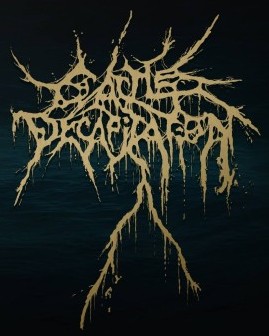
CATTLE DECAPITATION will bring their “Death Atlas” touring down under in February for a run of shows that will find them joined by Revocation. The dates for that trek can be found below, while Cattle Decapitation‘s new album “Death Atlas” is headed for a November 29th release.
02/13 Brisbane, AUS – The Brightside
02/14 Sydney, AUS – Factory Theatre
02/15 Newcastle, AUS – Cambridge Hotel
02/16 Canberra, AUS – The Basement
02/19 Melbourne, AUS – Max Watts
02/20 Frankston, AUS – Pelly Bar
02/21 Adelaide, AUS – Enigma Bar
02/22 Perth, AUS – Amplifier Bar
Compromise is not a concept Cattle Decapitation are willing to entertain. Ever. Over the course of nineteen years and six full-lengths the San Diego quartet have more than proven this, defining themselves as one of the most vital, brutal, and relentless forces in extreme music, and with The Anthropocene Extinction they have delivered a volatile, apocalyptic beast that is as hideous as it is compelling. “I feel that something rare happens with our band in that we get better and better with each release rather than going in the opposite direction, which happens to a lot of bands,” states vocalist Travis Ryan. “As we get older we feel we have less and less to lose, which is freeing, and we really want to go as far out on a limb as we can without losing the extremity that has always driven us.”
With 2012’s Monolith Of Inhumanity Ryan, guitarist Josh Elmore, bassist Derek Engemann and drummer Dave McGraw delivered a sledgehammer blow, maintaining their position at the most violent end of the death metal spectrum yet expanding their sound, allowing a little more melody in without losing any of their intensity. As always tied together by a central concept, Ryan’s bleak lyrics bluntly illustrated the fate of the human race if allowed to continue pillaging and destroying the planet. With The Anthropocene Extinction he extrapolates on this subject, looking back at the world in the aftermath of such ecological and environmental devastation, with its focus largely centered on the Pacific Ocean.





More Stories
EX DEO – Debut New Single & Lyric Video
IN FLAMES – Adds More US Shows
ORDER OF NOSFERAT – New Album Announced